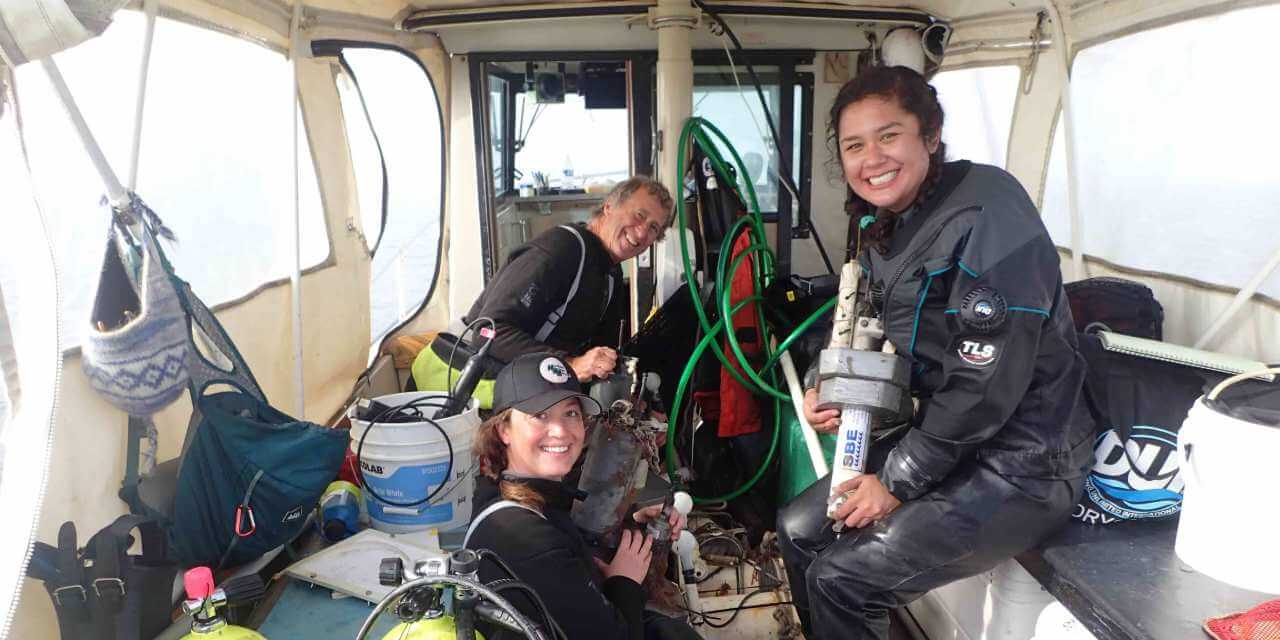BLE LTER in the Media
BLE LTER research featured by ROV manufacturer Deep Trekker
Our project lead Ken Dunton recently spoke with Deep Trekker about BLE's use of their remotely operated vehicles (ROVs) in our research. Certain features in particular such as the high-definition images and the navigation system have been useful in the Arctic conditions! Read the article on Deep Trekker's website.
Model results point to increasing freshwater and DOC exports to Elson Lagoon
BLE investigator Michael Rawlins and co-authors in a pair of papers describe an updated hydrological model of the North Slope, which, among other notable results, estimates that in 2019 the amount of freshwater dissolved organic carbon exported to Elson Lagoon is almost triple that of the 1980s. This has widespread implications for the lagoon ecosystems. Read the articles at Environmental Research Letter and Journal of Geophysical Research, or see the news release via UMass-Amherst. The studies were also featured on NSF research news.
New coastal permafrost research shows unexpected results
A new publication, co-authored by BLE LTER investigator James McClelland, uses subsurface mapping to show permafrost to be mostly absent under the shallow seafloor in Kaktovik Lagoon. This research poses implications on sea-land water exchange, carbon dynamics, and coastal erosion. Read the paper on Science Advances or coverage by The University of Texas Jackson School of Geosciences.
Graduate student spotlight: Brian Kim
The LTER Network Office interviewed BLE alum Brian Kim as part of an ongoing LTER graduate student spotlight series. Alongside his research in the sediment biogeochemistry of the lagoons, Brian also served as the LTER-wide graduate student representative and ran an Instagram account documenting student activities. Read his interview here to learn about his research, his experience in graduate school, and stories about field work with the BLE team.
New BLE LTER research on The Cryosphere
Michael Rawlins, BLE LTER investigator, led a new hydrological analysis of the Alaskan North Slope that points to thawing permafrost and increased groundwater flow under the surface. Read about the science on The Cryosphere, coverage by UMass Amherst, coverage by the National Science Foundation, and see the model data archived at the Environmental Data Initiative.
Alaska Ocean Acidification Network interviews BLE LTER scientist Arley Muth

Alaska Ocean Acidification Network recently interviewed Arley Muth, a BLE LTER scientist working on the Boulder Patch area east of Prudhoe Bay to study seasonal levels of pH among other ecological questions. Pictured, clockwise from top right: former project manager Christina Bonsell, scientist Arley Muth, and principal investigator Ken Dunton, on a field mission to the Boulder Patch.
PRX features BLE research on radio story
Lead PI Ken Dunton (UTMSI) discusses the importance of emerging Arctic research on local communities in feature radio story "Listening to the Arctic". Listen to the story on PRX.
AccuWeather Highlights BLE Research
AccuWeather story features PIs Amber Hardison (UTMSI) and Vanessa Lougheed (UTEP), who discuss the ecological importance of Arctic lagoons and how BLE LTER research relates to needs of the local community.
Other Stories
Port Aransas scientists conduct study in Arctic - Port Aransas South Jetty, May 2019
NSF awards $5.6 million to establish new arctic Long-Term Ecological Research site - NSF News, March 2017